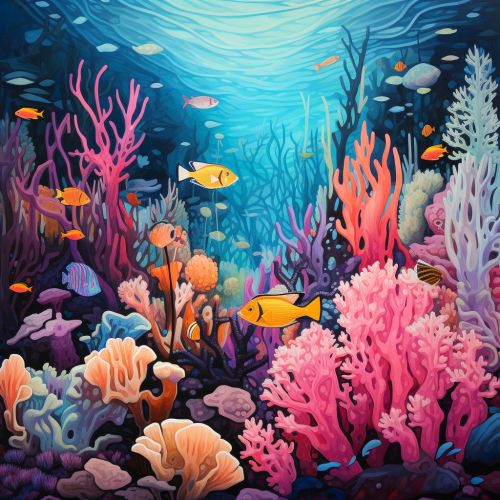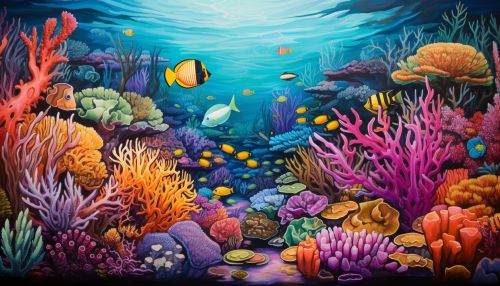The Ecology of Deep-Sea Coral Reefs and Their Conservation
Introduction
Deep-sea coral reefs, also known as cold-water corals, are complex marine ecosystems that exist in the deep ocean. Unlike their tropical counterparts, these corals thrive in cold, dark waters at depths ranging from 200 to 2,000 meters. They form some of the most intricate and biodiverse habitats in the world, providing shelter, food, and breeding grounds for a multitude of marine species.


Ecology of Deep-Sea Coral Reefs
Deep-sea coral reefs are unique ecosystems characterized by a high degree of biodiversity. They are home to a wide variety of organisms, including various species of corals, fish, mollusks, crustaceans, and sponges. These reefs are crucial for the survival of many deep-sea organisms, providing them with food, shelter, and breeding grounds.
Coral Species
Deep-sea corals belong to the order Scleractinian, also known as stony corals. Unlike tropical corals, deep-sea corals do not rely on sunlight for their survival. Instead, they feed on microscopic organisms and detritus that drift down from the surface waters. Some of the most common species of deep-sea corals include Lophelia pertusa, Madrepora oculata, and Desmophyllum dianthus.
Associated Fauna
Deep-sea coral reefs are teeming with life, hosting a diverse array of marine species. These include various types of fish, such as rockfish, cusk-eels, and eelpouts, as well as invertebrates like crustaceans, mollusks, and echinoderms. Many of these species are endemic to deep-sea coral ecosystems, meaning they are found nowhere else in the world.
Role in the Ecosystem
Deep-sea coral reefs play a crucial role in the marine ecosystem. They provide essential habitat for a multitude of marine species, acting as nurseries for juvenile fish and invertebrates. These reefs also contribute to the overall health of the ocean by filtering water and recycling nutrients.
Threats to Deep-Sea Coral Reefs
Despite their importance, deep-sea coral reefs are under threat from a variety of human activities. These include deep-sea fishing, oil and gas exploration, and climate change.
Deep-Sea Fishing
Deep-sea fishing, particularly bottom trawling, poses a significant threat to deep-sea coral reefs. This fishing method involves dragging heavy nets along the seafloor, which can cause extensive damage to the delicate coral structures.
Oil and Gas Exploration
Oil and gas exploration is another major threat to deep-sea coral reefs. Drilling activities can lead to the release of harmful substances into the ocean, which can negatively affect the health of the corals. Additionally, the physical disturbance caused by drilling can damage or destroy coral habitats.
Climate Change
Climate change is also a significant threat to deep-sea coral reefs. Rising ocean temperatures, ocean acidification, and changes in ocean currents can all negatively impact these delicate ecosystems.
Conservation of Deep-Sea Coral Reefs
Given the threats facing deep-sea coral reefs, conservation efforts are crucial to ensure their survival. These efforts include the establishment of marine protected areas, the regulation of fishing activities, and research into the effects of climate change on these ecosystems.
Marine Protected Areas
One of the most effective ways to protect deep-sea coral reefs is through the establishment of Marine Protected Areas (MPAs). These are areas of the ocean where human activities are regulated to protect biodiversity. MPAs can help to safeguard deep-sea coral reefs by prohibiting destructive activities such as bottom trawling and oil drilling.
Regulation of Fishing Activities
Regulating fishing activities is another crucial aspect of deep-sea coral conservation. This can involve implementing sustainable fishing practices, such as the use of fishing gear that minimizes damage to the seafloor. Additionally, fishing quotas can be established to prevent overfishing and allow for the recovery of fish populations.
Climate Change Research
Research into the effects of climate change on deep-sea coral reefs is also essential for their conservation. This research can help to inform management strategies and guide future conservation efforts.
